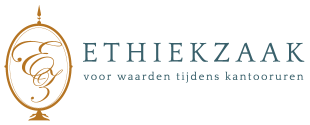1. Intervention setting
In consultation with you we determine the type of intervention:
Measurement:
to compare: according to the department/age/job/gender…
to prove: efficiency of measures, evolutions, …
Diagnosis followed by:
Recommandations,
Support: guidance, workshops, help of experts
Trainings
Certification
Then, together, we choose, adapt and create the dilemmas that will the best answer to your situation.
2. Data collection :
Your co-workers answer to dilemmas online, confidentially, at a rate determined together through a user-friendly interface.
3. Diagnosis: quantitative and qualitative analysis
Nicomak analyses the answers and communicate the results through the online interface. All of your co-workers receive the same analyses for each dilemma, in order to avoid any feeling of being judged: the objective is to work out the organization’s culture and not to judge individuals.
Managers receive similar analyses, with management recommendations in addition.
When it matches with the program objectives a group report can be given: only to managers or to all coworkers involved.
4. Diffusion of the results
Sessions are organized to transmit the results in the form of lectures, seminars or trainings.
Nicomak also offers recommendations that we help you carry out with:
Trainings
Support: guidance …
To go further:
Assess the evolution
You can answer a second group of dilemmas later to assess:
The natural evolution
The effectiveness of measures put in place
Certification
The ISO 26 000 Standard is not certifiable and as it is complex, it is mostly designed for bigger companies. These two statements led Nicomak to develop a frame of reference for a pragmatic certification resulting from the ISO 26000 Standard but focused on your own situation rather than on theoretical quality process.
The cumulative conditions to get the Ethimak certification are:
Deal with at least 6 out of the 11 categories of dilemmas developed by Ethimak;
Answer at least to 12 dilemmas during a 3 month period;


